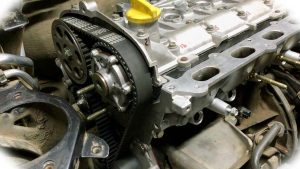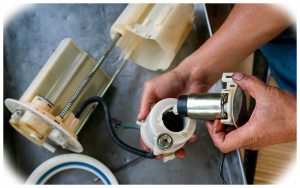When it comes to operating a motor vehicle, the engine is one of its most essential components. It provides the car with power and allows it to function effectively. When an engine gets too hot, however, this can lead to a variety of different issues. One common problem that occurs when an engine is too hot is that the car won’t start up at all. This can be an extremely frustrating experience for any driver, as they may not be able to get where they need to go until the issue is fixed.
Reasons Why a Car Might Not Start When Hot
When a car won’t start when the engine is hot, this could be caused by a variety of different factors. Some of the most common reasons why this might happen include:

Low Coolant Levels: Low coolant levels can cause your engine to overheat, which in turn can lead to a car not starting when it’s hot. When the coolant levels in your vehicle become too low, the radiator won’t be able to properly keep your engine from overheating and could cause the engine to seize up.
Failing Alternator: The alternator is responsible for keeping your battery charged and providing power to other electrical components such as the spark plugs that help ignite fuel and start up the car’s engine. If any of these components fail or become damaged due to heat, then this could cause your car not starting when it’s hot.

Possible Solutions for Starting a Car When Hot
When it comes to finding solutions for getting a car to start when it’s hot, there are a few different things that you can do.
Letting the Engine Cool Down: One of the easiest and most effective ways to get your car started when it is hot is to simply let the engine cool down before attempting to start it up again. This will help reduce the risk of overheating, as well as give any components inside the engine time to reset and return back to their normal operating temperature.
Checking and Replacing Damaged Parts: If you suspect that one or more parts in your engine have been damaged due to heat, then it is important that you take a look at them and see if they need replacement or repair. This could include anything from checking for worn belts or hoses, inspecting fuel lines for clogs, or checking for loose connections in electric components such as alternators, spark plugs, fuel pumps, etc.
Adjusting the Timing Belt Tension: In some cases, adjusting the tension on your timing belt can help get your car started when it’s hot outside. If your timing belt has become too loose over time due to wear and tear or damage from heat exposure then this could be causing problems with your car starting up. To fix this issue, you may need to have a professional adjust the tension on your belt in order to get it back to its normal operating parameters.
Conclusion
When a car won’t start when it’s hot, this can be caused by a variety of different issues ranging from lack of coolant levels and worn belts, to faulty alternators and fuel pumps that have been damaged due to heat exposure. In order to find out what is causing your car not starting when hot, it is important that you take the time to inspect all components inside the engine and see if any of them are in need of repair or replacement. Additionally, letting the engine cool down before attempting to start it up again can also be very helpful in helping reduce the risk of overheating and getting your vehicle moving once more.


Add Comment